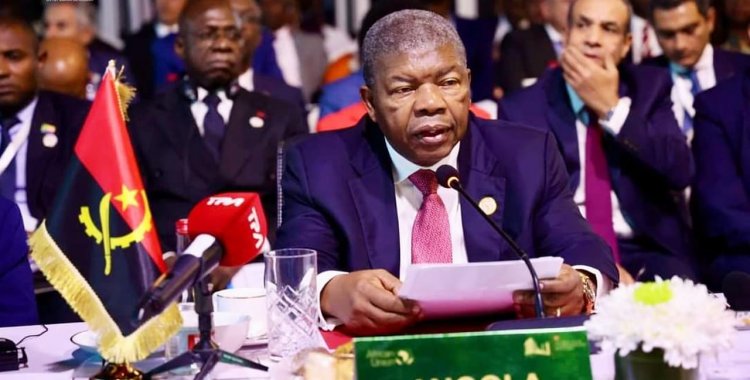"Like Rwanda and South Africa - which is effectively the case - Angola aims to be a regional power and its role in the presidency of the AU gives it symbolic capital for this purpose", the researcher from the Centre for International Studies at ISCTE (University Institute of Lisbon) told Lusa.
According to the professor, Angola has a preferential position to mediate conflicts and is even an active member of the ICGLR (International Conference on the Great Lakes Region), which includes, for example, the conflicts in the east of the Democratic Republic of Congo (DRCongo), in which President João Lourenç has already been mandated by the AU as mediator of the conflict.
Clara Carvalho also highlighted the importance of Angola as a Portuguese-speaking country and member of the Community of Portuguese Language Countries (CPLP), which allows it to act in Mozambique, or in Guinea-Bissau, where, according to the researcher, it has already participated "in the reform of the security sector".
According to the professor, João Lourenço and his government have a "pragmatic approach to foreign policy", which, for example, led Angola to move closer to the Biden administration, which culminated in a visit by the former US President to Luanda and the "development of the Lobito economic corridor".
"The latter is part of the creation of infrastructure in the region, in particular the Lobito Atlantic Railway, between the port of Lobito and the border with the Democratic Republic of the Congo and, eventually, to Zambia. The investments are from the European Union (EU) and the USA", she explained.
In his opinion, the AU currently faces some challenges, such as "the difficulties in implementing the ambitious Agenda 2063 [an AU initiative that aims to resolve past injustices], ongoing conflicts and political instability, the creation of an effective system of coordination between states and regions, support for the development of infrastructure - notably the Atlantic-Indian rail network, of which the Lobito corridor is an essential element - the financing of the AU itself - which is highly dependent on the EU - and continued support for initiatives to deal with crises.
In the opinion of Peter Fabricius, Foreign Policy Analyst and researcher at the Institute for Security Studies (ISS), "the AU will not be able to effectively face all these challenges, largely due to a lack of resources", the expert said in an interview with Lusa.
According to the researcher, "the AU has had little impact and is leaving mediation efforts to third parties, such as Turkey's role in mediating reconciliation between Somalia and Ethiopia on Ethiopia's recognition of Somaliland".
"[Turkish President] Erdoğan also offered to mediate the civil war in Sudan [in the Great Lakes region]. The AU lacks credibility and neutrality to mediate most African disputes", she stressed.
In turn, the resurgence of war in the neighboring nation, DR Congo, "is a growing problem for Angola", said Clara Carvalho.
"The relationship with Rwanda will be one of the great challenges of João Lourenço's presidency. Over the last 30 years, this country has been seen as a center of stability in the region, and Paul Kagame's autocratic government has been largely supported by the EU, which has interests in mining and building infrastructure in the country", the professor stressed.
For example, the Rwandan army, when chosen by the Southern African Development Community (SADC) and the AU to intervene in the conflict in Cabo Delgado, Mozambique, received 40 million euros from the EU to support its military, he concluded.







